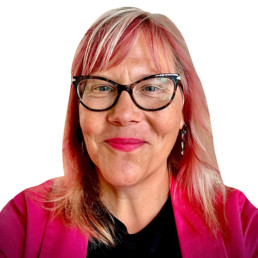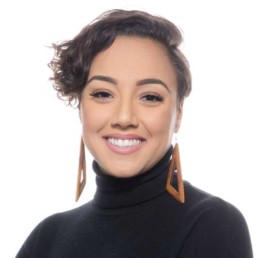LEARNINGS FROM OUR RECENT WORKSHOP
At midnight on September 1, 2021, Senate Bill 8 went into effect in Texas, banning abortion as early as six weeks into pregnancy and effectively eliminating nearly all abortion care in the state. The law decimates access for close to 15 million Texans, hitting women in Black, Latinx, and immigrant communities hardest. What’s more, it includes a bounty-hunting scheme, offering $10,000 to anyone who successfully sues a doctor, health center worker, or other person helping someone obtain an abortion after six weeks of pregnancy.
While the Department of Justice has sued Texas, SB 8 remains in effect. Lawsuits have already been filed against Texas OB/GYN Dr. Alan Braid for providing abortion care. And there are more battles to come. This fall, on December 1, the Supreme Court will hear Dobbs v. Jackson Women’s Health Organization which explicitly asks the Court to overrule Roe v. Wade and end the constitutional right to abortion.
So what can we each do about this bleak landscape? At our September workshop After Texas: The Fight for Abortion Access, we dug into all of these issues and more. Organized in partnership with the Center for Reproductive Rights (CRR) and moderated by Dahlia Lithwick of Slate, the event featured experts from the front lines: Amy Hagstrom Miller of Whole Woman’s Health Alliance, part of the coalition to stop SB 8; Jenny Ma, one of the CRR attorneys representing the providers in Dobbs; and Jessica Pinckney of Access Reproductive Justice in California.
You can read the highlights and watch the workshop here—and sign up for our newsletter to stay in the loop about upcoming events.
READ THE HIGHLIGHTS
“Spectacularly cruel:” the situation in Texas right now
On the ground in Texas, the situation is “really bad,” says Amy Hagstrom Miller, of Whole Woman’s Health, who adds that while their clinics and all of the 20 clinics providing abortion in Texas are open, they’re only able to see about 20 percent of the people who are coming in for appointments—those who are six weeks or less into pregnancy.
“Everybody’s complying with SB 8 because of the just incredible threats that are connected to what will happen to us if we don’t, which means that we’re turning away almost everyone,” Hagstrom Miller says. “It’s heartbreaking… because the people who are pregnant, who are seeking services, are devastated. They’re in shock.”
And as the law makes clear, anyone who even helps a provider is at risk of being sued. “All of those folks now have a target on their backs, too,” moderator Dahlia Lithwick says. “And I think that’s a piece of this that is just particularly spectacularly cruel, beyond just the bounty, which is…deranged.”
The impact of SB 8 on pregnant people in Texas has been immediate and breathtakingly vicious, panelists say. Consider: The majority of patients that Whole Woman’s Health serves—almost 80 percent—are parents already, meaning most of them can’t just leave the state for care, Hagstrom Miller adds. “Most folks are really experiencing SB 8 almost as a sentence to continue their pregnancy against their will.”
Why Senate Bill 8 is so dangerous
As if denying essential healthcare and turning civilians into bounty-hunters isn’t bad enough, SB 8 is designed to put abortion clinics out of business.
“When [the law] went into effect, one of the things that everybody who was armchair quarterbacking said, ’Why doesn’t someone just Rosa Parks this thing? Someone should just break the law and get sued,’” Lithwick says. But what people don’t realize, she continues, is that the bounty-hunting scheme creates extreme financial burden that can put a provider’s future at risk. “This is not ‘I take the hit; I pay the $10,000 in the lawyer’s fees.’”
Instead, says Hagstrom Miller, “it’s a $10,000 minimum and attorney’s fees, and they can bring the suit in any county in the state of Texas. Keep in mind—literally, it’s not just a country song—you can drive all day and never leave Texas, like 12 hours.” That means anyone who is sued might have to show up repeatedly for hearings in a county that may be hours away.
What’s more, Hagstrom Miller adds, multiple lawsuits can be brought over one abortion. “The person who drove the patient, every clinic staff person, the security person, the doctor, the abortion fund, the insurance company—so even just doing one procedure could bring about a whole bunch of lawsuits and a ton of damage to the infrastructure.”
It’s “a strategy to run [abortion providers] dry,” she says, since the cost of these lawsuits aren’t covered by malpractice. And it’s why clinics are complying with a law they know is unconstitutional. “It was the only way we could make sure that there is an infrastructure still available at the other end of this, when we knock this law down, to be able to care for people—that there are still clinics here.”
Who Senate Bill 8 hits hardest
SB 8 essentially eliminates abortion access for close to 15 million Texans and it hits women in Black, Latinx, and immigrant communities hardest. And, as Lithwick points out, “it’s not like Texas was a picnic before” in terms of accessing abortion care.
To get a sense of the challenges, it’s helpful to look at how complicated abortion care can be, even in a progressive state like California. “You could have to travel many hours to find the type of abortion care that you need,” says Jessica Pinckney of California-based Access Reproductive Justice. And when you think about the logistical barriers people face in accessing abortion care—traveling to a provider, overnight lodging for a multi-day appointment, childcare, getting time off from work—it’s vulnerable communities that are hit hardest. “We know that this is going to disproportionately impact communities of color, low-wage workers, wage workers period,” says Pinckney.
California is also one of only few states where Medicaid covers abortion care—in most states the Hyde Amendment prevents the use of federal funds to access care. “We know that, because of structural racism and discrimination, that it is folks of color who face the most rampant income inequality and are therefore more likely to be covered by Medicaid,” she adds. “Henry Hyde [Illinois Congressman and chief sponsor of the Hyde amendment] was very explicit when he first introduced the Hyde amendment in the ’70s: If he couldn’t ban abortion for everyone, he was going to ensure that it was banned for low-income people and communities of color… So the Medicaid restrictions that exist for abortion care in large swaths of this country are very intentional.”
What SCOTUS could do
The battle in Texas is just part of what has been the most hostile state legislative session in recent history for abortion rights, with more than a dozen states poised to enact Texas-style laws. And on December 1, the Supreme Court will hear the Mississippi case Dobbs v. Jackson Women’s Health Organization which explicitly asks the Court to overrule Roe v. Wade and end the constitutional right to abortion.
So, with Dobbs looming in Mississippi, why did the Supreme Court refuse to grant an injunction in the Texas case and temporarily suspend it? “Why do we have the court in the dark of the night—in the middle of the summer recess on the shadow docket—doing something in the most seemingly nefarious way that they were going to do anyway?” Lithwick asks. “The Court has done this sort of hashtag YOLO, you know, ‘we’re going hog wild.’ Can you give us the intersection between what the court did in SB 8 by not granting an injunction with what’s coming down the pike very quickly in Dobbs?”
Jenny Ma, senior staff attorney at the CRR, says no one expected the Supreme Court to take the Dobbs v. Jackson Women’s Health case. “I know it’s sexy in the media to talk about bans; they are very easy for us as lawyers to block,” she says. “We’ve successfully blocked every single one…because the law is so clear, because Roe stands, because this case called Planned Parenthood v. Casey stands, and it is absolutely clear that you cannot ban abortion prior to viability.”
“Now that’s been very clear; it’s been clear for 50 years and that’s why these cases have been so easy legally. But what we see with SB 8, what we saw with some of the justices changing, with the Supreme Court, is that the states got more and more emboldened… Mississippi’s ask is ridiculous. They said, you know what? Just take away the viability line, overturn Roe, and that’s fine… It’s a devastating view of how people should construct their families and what they think should happen to pregnant people’s bodies.”
How to get involved
Ready to take action? Our speakers shared what we can all do to push this cause forward.
1. Talk more openly and positively about abortion in your communities—it reduces stigma and shame.
“The National Network of Abortion Funds has a saying ‘everybody knows somebody who’s had an abortion whether you know it or not,’ and the work that we can be doing as a society and, as a culture, to destigmatize abortion is incredibly important right now,” says Pinckney. So talk to your friends and family members, she says, and you may be surprised how many have had experiences having abortions or know someone who’s had an abortion. “The more freely we can say the word and the more willing we are to have these conversations openly and regularly,” the more we’ll be able to create systemic change in our country.
“Talk about how abortion benefited you or benefited somebody you love,” Hagstrom Miller adds. “Contribute to a positive affirmative narrative about the good, moral, ethical thing that abortion is in our communities and in our families.”
2. Volunteer as a clinic escort at your local abortion clinic. You can locate independent providers via the Abortion Care Network, or apply to your local Planned Parenthood.
3. Consider donating to the Abortion Care Network’s fund, Keep Our Clinics, which supports independent abortion clinics; or donate to Texas abortion funds and pro-choice legal groups via Act Blue. To support an abortion fund in your state, enter your zip code at the National Network of Abortion Funds to find the one closest to you.
You can also support the organizations featured in this briefing: Whole Woman’s Health is a Texas-based reproductive health care provider which continues to lead litigation against SB 8, and Whole Woman’s Health Alliance, a nonprofit advocacy organization that works to destigmatize abortion. The Center for Reproductive Rights uses the power of law to advance reproductive rights as fundamental human rights around the world. Access Reproductive Justice is a California-based organization that removes barriers to sexual and reproductive health care.
4. Learn more about the Women’s Health Protection Act, currently before Congress, which would protect the right to abortion across the U.S.
“I would urge everyone to learn more about WHPA,” says Ma. “It’s federal legislation that can protect the right to access abortion throughout the United States and really follow medicine, rather than politically-motivated restrictions.”
5. Spread the word about Plan C pills.
“One resource I did want to lift up around the question of medication abortion is Plan C, which is a great resource for folks wanting to get abortion pills, which are legal in all 50 U.S. states and DC and the territories,” says Pinckney. Some states, however, have more restrictive laws than others. The Plan C site has resources and support to help anyone needing an abortion understand their options.
6. Support your local abortion providers, who have been under an immense amount of pressure and stress. Donations are wonderful, but cards of gratitude are meaningful, too.
Don’t miss the takeaways from earlier workshops in this series—Reproductive Rights and Justice: What’s Ahead in 2021 and Justice for Mothers This Year: The “Momnibus” and More Ways to Make Change Happen.
SPEAKERS
Amy Hagstrom Miller
Amy Hagstrom Miller, founder and president of Whole Woman’s Health and Whole Woman’s Health Alliance, is a fierce advocate for women’s access to safe abortion care in Texas and throughout the country.
Jenny Ma
Jenny Ma is a senior staff attorney with the Center for Reproductive Rights and part of the legal team in the upcoming Supreme Court case that will determine the future of abortion care in states like Mississippi.
Jessica Pinckney
Jessica Pinckney is the executive director of Access Reproductive Justice, a California-based community organization funding abortion and advocating for reproductive justice.
Dahlia Lithwick
Dahlia Lithwick, a founding member of The Meteor, is a senior editor and columnist at Slate, where she hosts the podcast “Amicus,” about law and the Supreme Court. Her work has also appeared in The New York Times, Harper’s, The New Yorker, The Washington Post, and more.



